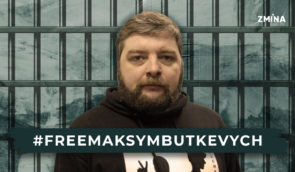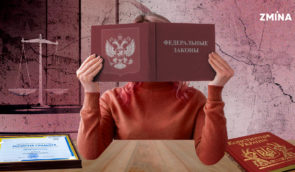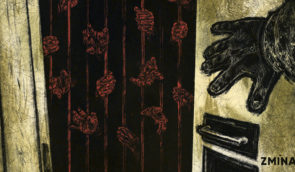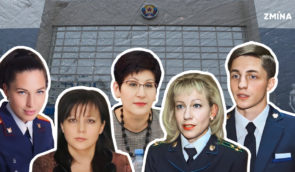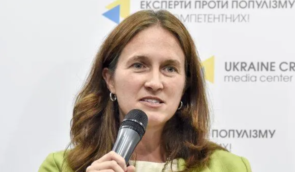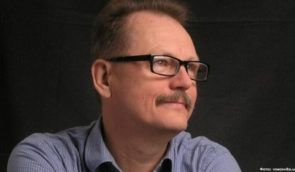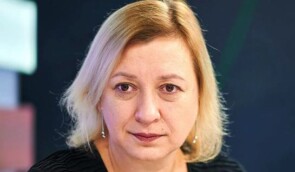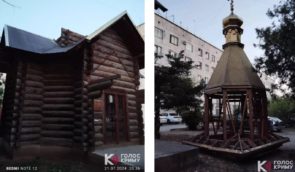Crimean unfreedom of speech, or Notes of OSCE HDIM2016
To speak quietly, not to express pro-Ukrainian stance, not to cover the trials in the “case of February 26” in the media, to forget the name of persecuted journalist Mykola Semena, convict Akhtem Chiygoz, and missing Ervin Ibragimov, not to write critical materials, to be afraid… This is becoming a norm on the Crimean peninsula, unanimously declare the participants in the OSCE Human Dimension Implementation Meeting HDIM2016 in Warsaw.

Except for, however, delegations from the Russian Federation. Thus, according to deputy Mufti of Crimea Ayder Ismailov and chairman of the Crimean branch of the Russian Union of Journalists Andrei Trofimov, “everything is fine” in Crimea and “there is not a single complaint from the local media about harassment, censorship, and attacks on freedom of speech“…
Crimea and the freedom of speech on the peninsula were one of the key topics of the HDIM2016 in Warsaw. Even the issues of refugees and problems of Turkey, which was described by one of the Meeting participants as “the biggest prison for journalists”, lost against the Crimean background.
Crimea has been referred to as “the peninsula of fear” for the third year in a row in the Ukrainian media as well. The journalists, pro-Ukrainian activists and Crimean Tatars suffer from violations of the freedom of speech most of all. A post on Facebook is punished with detention, a Friday prayer in the mosque is punished with a suspicion of extremism, and the criticism of local authorities is punished with a summons.
“I know cases when some Crimean Tatars sleep dressed. Do you know why? Because Russian Federal Security Service officers break into the houses early in the morning and people do not want to be caught undressed… Many of the Crimean Tatars are waiting when officers will come to their houses,” Elvin Kadyrov, the member of the NGO “Community of Crimean Tatars”, said.
UNDER PRESSURE AND CENSORSHIP
The workdays of Crimean journalists are denials of license and registration of media, intimidation, accusations of extremism.
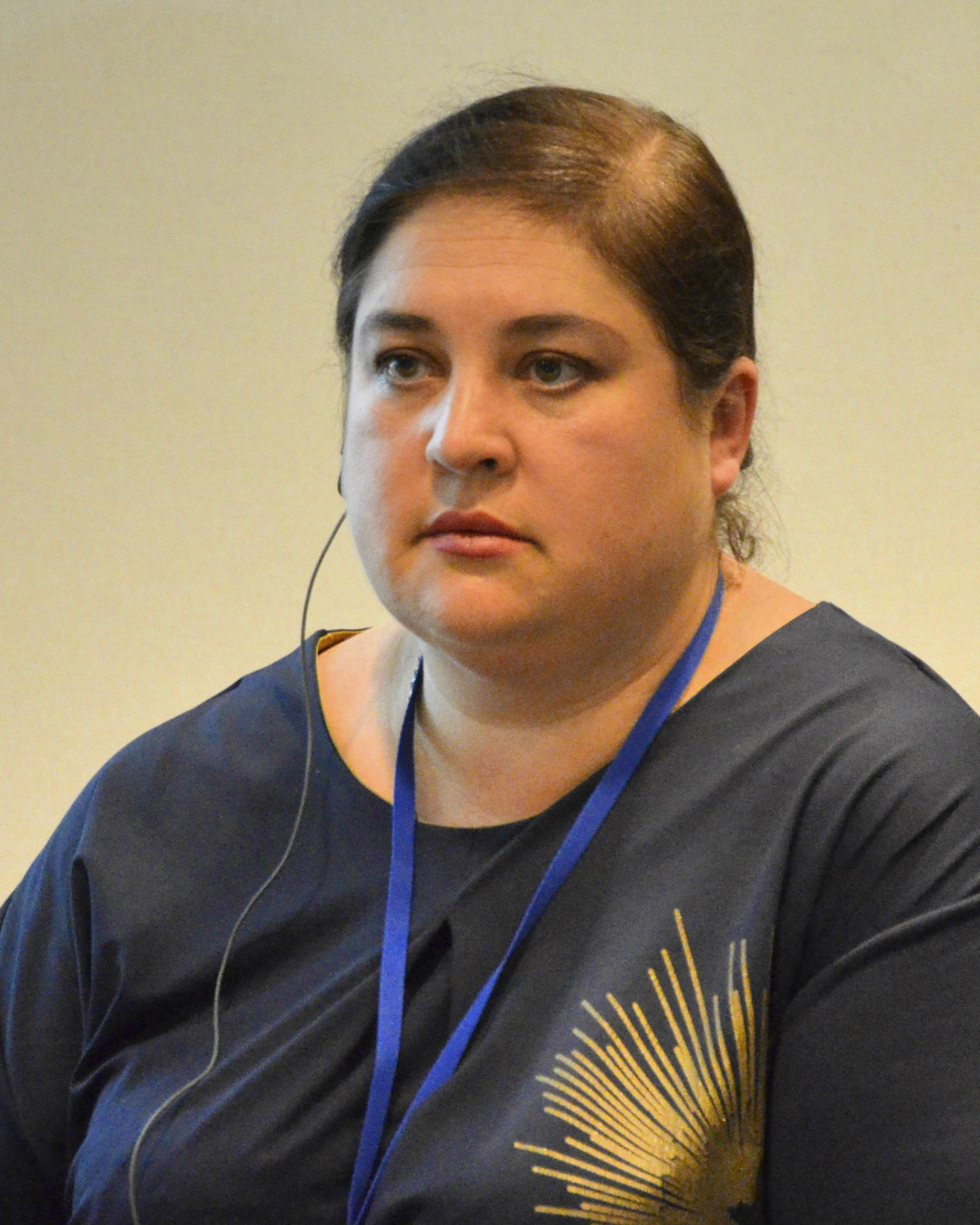 “The media in Crimea have lost a mirror function. Journalists leave the profession and go in the advertising business or move to Kyiv, Kherson, and other cities. However, “new” local media and Russian media present a picture that everyone is happy in Crimea,” said journalist Olena Lysenko, who, taking into account the pressure of professional activity, was forced to leave the peninsula in early 2016.
“The media in Crimea have lost a mirror function. Journalists leave the profession and go in the advertising business or move to Kyiv, Kherson, and other cities. However, “new” local media and Russian media present a picture that everyone is happy in Crimea,” said journalist Olena Lysenko, who, taking into account the pressure of professional activity, was forced to leave the peninsula in early 2016.
“I was establishing the media business in Crimea. However, I was afraid of the events of early 2014. When they began to seize military facilities in Crimea and there were no guarantees of safety for journalists, I could not send younger colleagues there. I had to take a camera myself. When some men approached me near the Kerch Strait ferry line and asked to go away, I asked, in a way I had got used in Ukraine, about a reason for their suggestion. However, they did not speak with me for a long time. They set eight or ten men in the Cossacks uniform on me, who quickly drove me out of the ferry line,” Olena Lysenko added.
According to the journalist, 87% of the Crimean media failed to re-register. In particular, such media outlets as the Novosti Kryma (News of Crimea), the 15 Minut (15 Minutes), the website of the Center for Investigative Journalism, the Black Sea Broadcasting Company, the ATR TV channel and other outlets were either closed or their editorial offices moved to the mainland Ukraine.
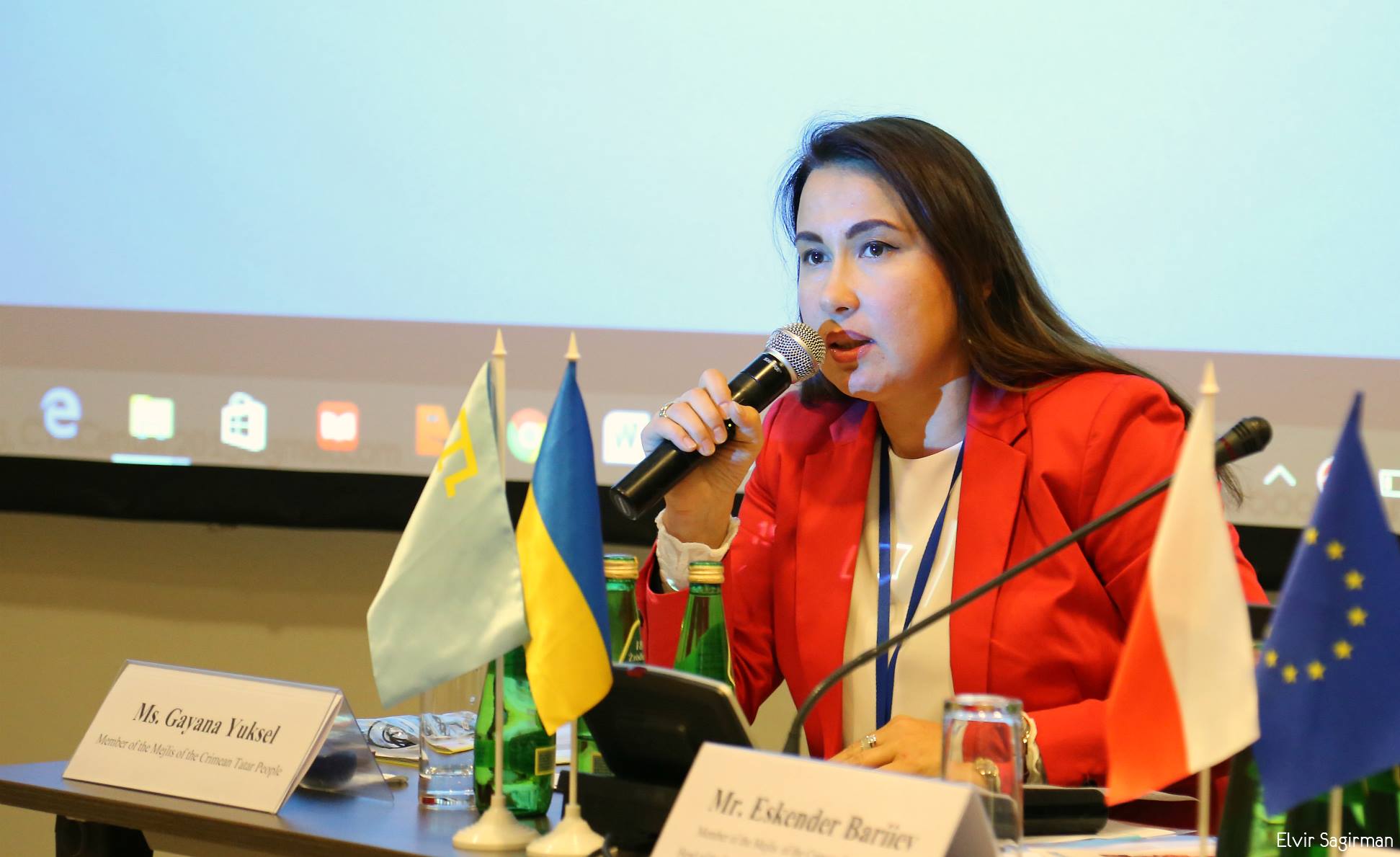 “Almost all Crimean Tatar media, not only the ATR channel which is often mentioned, found themselves under pressure. The Russian Federal Supervision Agency for Information Technologies and Communications (Roskomnadzor), which should only accept the documents for registration, has become one of the key censorship authorities and impedes the work of the independent media,” Gayana Yuksel, the editor-in-chief of the QHA media outlet, the member of the Mejlis of the Crimean Tatar people, said.
“Almost all Crimean Tatar media, not only the ATR channel which is often mentioned, found themselves under pressure. The Russian Federal Supervision Agency for Information Technologies and Communications (Roskomnadzor), which should only accept the documents for registration, has become one of the key censorship authorities and impedes the work of the independent media,” Gayana Yuksel, the editor-in-chief of the QHA media outlet, the member of the Mejlis of the Crimean Tatar people, said.
The journalist also came under the spotlight of the “local authorities.”
“I was invited for questioning, where they began to accuse me, saying our media outlet wrote about such extremist organizations as the Right Sector. I asked when those articles had been published, and I was shocked by their answer – the mentioned articles were published in 2006. That is, the articles had been released before the annexation of Crimea, when the Ukrainian laws had been effective… Later I found out that the case was closed due to lack of evidence,” Gayana Yuksel said.
The journalist noted that there was no period of limitations now in Crimea and the law was retroactive. Gayana Yuksel also commented on the statement made by a representative of the Russian delegation.
“As for the statement that 50 new media outlets have been allegedly opened in Crimea and three official languages (Russian, Ukrainian and Crimean Tatar) have been declared… However, it does not mean that the channels speak the Crimean Tatar language and the articles form the national-cultural layer. Crimea has become a peninsula, where there is total surveillance, fines for freedom of expression. As of now, more than 250 violations against the journalists and the media were recorded in Crimea, this list is constantly updated,” Yuksel added.
Journalist Olena Lysenko also believes that “the information field of Crimea is being mopped up, the Crimean journalists are intimidated in some cases.” “New Crimean media outlets have been created, which are aimed at supporting the Russian propaganda. It has become difficult to write not only on political issues and human rights violations as no criticism is allowed, even if it is about the preparations for the holiday season or other social problems.”
WITHOUT RIGHT TO ENTRY
Another problem is the unfettered entry of Ukrainian and foreign mass media representatives to the territory of Crimea.
On the one hand, there is a groundless ban of the so-called Crimean authorities. Human rights activist Tetiana Pechonchyk recalls the cases of journalist Ihor Burdyha, who was being interrogated by the Russian Security Service officers for seven hours, journalist of the Ukrayinska Pravda online newspaper Anastasia Rinhis, who was denied entry by the occupation authorities. On the other hand, there is a complicated procedure of Ukrainian Foreign Ministry for the accreditation of foreign journalists. Foreign journalists often choose the “easier” route through Russia due to these bureaucratic barriers. Another option – to settle for journalistic press tours. Journalist Yuri Lukanov recalls regular “proposals” made by Russia Today channel and the Foreign Ministry of Russia. According to Lukanov, these trips do not testify to the openness of Russia and Crimea. The main purpose is to accustom the world to the fact that Crimea is the Russian territory, and “everything is fine here, it is high time to forget about the annexation.”
However, the presence of foreign media on the Crimean peninsula is important more than ever before. As Olena Lysenko said, if the local media are afraid to cover the trials of political prisoners, the foreign journalists should do that. “This would be a significant support from the international community,” she commented.
WITHOUT RIGHT TO PROFESSION
 It should be noted that not only Ukrainian human rights activists were speaking about the human rights violations in Crimea at the OSCE Meeting in Warsaw. Thus, the HDIM2016 was attended by Aleksandr Popkov, the lawyer of Crimean journalist Mykola Semena.
It should be noted that not only Ukrainian human rights activists were speaking about the human rights violations in Crimea at the OSCE Meeting in Warsaw. Thus, the HDIM2016 was attended by Aleksandr Popkov, the lawyer of Crimean journalist Mykola Semena.
“The human rights situation in Crimea is very bad and it affects not only Ukrainians. Being a Russian citizen, I am concerned that the policy of lawlessness, which is now observed in Crimea, is spreading across the Russian Federation,” Popkov said.
This is why the lawyer became the defender of journalist Mykola Semena. Popkov argues that the violation of freedom of expression affects not only media workers, but him and his colleagues as well.
“In Russia there are not so many lawyers in political cases, moreover, in cases of Ukrainian detainees. Being a lawyer, I have a certain status, I’m not used to go and look around. However, here in Crimea, journalists are afraid to say that they are journalists, bloggers. At one of the court hearings I noticed that one woman was writing something in her notebook. She was not a relative. When I asked her whether she was a journalist, she was confused and tried to end the conversation,” Aleksandr Popkov said.
Apart from Mykola Semena, seven more journalists were searched. All of them left the profession – three people went to the mainland Ukraine, others stopped writing, fearing for their lives.
“The security forces have an unlimited mandate of violence,” Popkov said and added: “These facts scare. The Russian tendency spreads: any criticism, any information that is contrary to the basic propaganda lead to the fact that a person is isolated and silenced. Primarily, it is a process of intimidation, then – the prosecution. My client Mykola Semena is accused of public calls for return of Crimea. These accusations are absurd. The international documents say that Crimea is a part of Ukraine,” Aleksandr Popkov noted.
FORCE IS IN PUBLICITY
Aleksandr Popkov believes that his greatest force as a lawyer and the greatest force of journalists and human rights activists is the publicity of litigation, publicity of human rights issues.
“Our investigators like silence. So, our force is to talk about violations, to publicly cover the trials, to attract as much international attention to the situation in Crimea as possible. Dealing with the Semena case, we compete not for acquittal. It is nonsense for the Russian reality… For my four-year practice, I have encountered only two acquittals, and they do not touch upon the political motives. The probability of victory in the political cases is, unfortunately, ghostly. However, our goal is to prove all these accusations are absurd and ‘politically motivated’ to the international community,” the Russian lawyer said.
Iryna Vyrtosu specially for Detector Media
Trip to HDIM2016 in Warsaw and preparation of the article became possible thanks to OSCE support
Photo credit: author of the article, сtrcenter.org, novostimira.net

